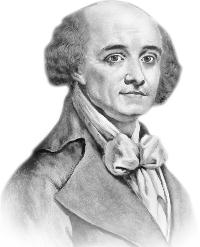- Giovanni Battista Viotti
Infobox musical artist
Name = Giovanni Battista Viotti

Background = non_vocal_instrumentalist
Born =May 12 ,1755 Fontanetto Po ,Savoia Kingdom of Sardinia
Died =March 3 ,1824 London ,England
Genre = Classical
Occupation =Composer ,violin ist
Years_active = 1755-1824
Notable_instruments = Violin
"Telláki Stradivarius" 1690
"Sopkin-Viotti Stradivarius" 1695
"Jupiter Stradivarius " 1700
"Viotti Stradivarius" 1704
"Marie Hall Stradivarius" 1709
"Viotti Stradivarius " 1709
"Viotti Stradivarius" 1712
"Colossus Stradivarius" 1716
"Arnold Rosé-Viotti Stradivarius" 1718
"Dragonetti-Milanollo Stradivarius" 1728
"Parlow-Viotti Guarneri del Gesù" 1735Giovanni Battista Viotti (
May 12 ,1755 –March 3 ,1824 ) was an Italianviolin ist whose virtuosity was famed and whose work as acomposer featured a prominent violin and an appealing lyrical tunefulness. He was also a director of French and Italian opera companies in Paris and London.Biography
Viotti was born at
Fontanetto Po in theSavoia Kingdom of Sardinia (today theprovince of Vercelli ,Piedmont ,Italy ). For his musical talent, he was taken into the household of principe Alfonso dal Pozzo della Cisterna inTurin , where he received a musical education that prepared him to be a pupil ofGaetano Pugnani . He served at the Savoia court in Turin, 1773-80, then toured as a soloist, at first with Pugnani, before going toParis alone, where he made his début at theConcert Spirituel ,17 March 1782 . He was an instant sensation and served for a time at Versailles before founding a new opera house, the "Théâtre de Monsieur" in 1788, under the patronage of thecomte d'Artois , the king's brother; there he mounted operas of his friendLuigi Cherubini , among lesser lights. When theFrench Revolution took a radical turn and, though his opera house was renamed the Théâtre Feydeau, former royal connections became a dangerous liability, he moved in 1792 toLondon , making his début atJohann Peter Salomon 's Hanover Square Concert,7 February 1793 . In London he went from success to success, as a featured violinist for Salomon's concert series, 1793-1794; as musical director of the new Opera Concerts in 1795; as a star in the benefit concerts for Haydn, 1794 and 1795; as acting manager of Italian opera at theKing's Theatre , 1794-1795; and as leader and director of the orchestra, 1797. He was invited to perform in the houses of the London "bon ton", including for the Prince of Wales.Then, with Britain at war with Revolutionary France, he was ordered to leave the country, under suspicion of Jacobin sympathies. He later returned to Paris and London, but gave up giving concerts to run a wine business. In 1813 he was one of the founders of the Philharmonic Society of London. His wine business failed however, and he returned to Paris to work as director of the
Académie Royale de Musique , from 1819 to 1821. He died on a visit to friends in London.In spite of his few direct pupils, Viotti was a very influential violinist. The teacher of both
Pierre Rode andPierre Baillot and an important influence onRodolphe Kreutzer , all of whom became notable teachers themselves, he is considered the founding father of the 19th century French violin school. He also taughtAugust Duranowski , who was an influence onNiccolò Paganini .Viotti owned a violin fabricated by
Antonio Stradivari in 1709 that would eventually become known as the "Viotti Stradivarius ". He is also thought to have commissioned the construction of at least one replica of this violin. The "Viotti ex-Bruce", renamed in honour of its previous owner, was purchased by theRoyal Academy of Music in September 2005. Funding was provided by HM Government in lieu of Inheritance Tax, and by theNational Art Collections Fund , theNational Heritage Memorial Fund and many private donors. The instrument will be displayed in the York Gate Collections, the Academy's free museum and research centre. The "Viotti ex-Bruce" will be heard as well as seen: the instrument will be played sparingly, under very controlled circumstances, at research events and occasional performances elsewhere.Viotti's most notable compositions are his twenty-nine
violin concerto s, which were an influence onLudwig van Beethoven . One in particular, No. 22 in A minor (1792), is still very frequently performed--especially by advanced student players. The other concertos are of similar quality but almost never heard; however in 2005 violinistFranco Mezzena released an integral set on theDynamic Italy label.Viotti's music generally features the violin prominently: most of his
string quartet s largely ignore the balanced texture pioneered by Haydn, giving a "solo" role to the first violin and as such may be considered "Quatuors Brillants". However, his "Tre Quartetti Concertanti", G.112, 113 and 114 (afterRemo Giazotto who catalogued Viotti's works [Giazotto, "Giovan Battista Viotti" (Milan: Curci), 1956.] ), composed in 1815 and published in Paris in 1817, are true concertante works offering extensive solos for each instrument and not just the first violin. Viotti often wrote chamber music for more traditional combinations such as two violins and cello. The Opp.18 and 19 are perhaps the best known of these and are still in print today. He also wrote sonatas,song s, and other works.Viotti Festival, Vercelli (Italy)
* [http://www.viottifestival.it Sito ufficiale del
Viotti Festival diVercelli G. B. Viotti Competition
Viotti is commemorated annually in the
Viotti International Music Competition near his birthplace inVercelli , Italy. [http://www.concorsoviotti.it/]Notes
External links
*IMSLP|id=Viotti, Giovanni Battista|cname=Giovanni Battista Viotti
* [http://www.editionsilvertrust.com/music-books-s-to-z.htm Sound-bites of String Quartet in B Flat Major, G.113 & String Quartet in G Major, G.114]
* [http://it.youtube.com/watch?v=FdZPzazdS_8 video:Duetto per due violiniUto Ughi ] eGuido Rimonda
* [http://it.youtube.com/watch?v=X8eH_7aRdfg video:Meditazione in Preghiera per violino e orchestraGuido Rimonda ,Orchestra Camerata Ducale ]
* http://www.viottifestival.it Sito ufficiale delViotti Festival diVercelli
*Alessandro Di Profio, 2003. "La Révolution des Bouffons: L’opéra italien au Théâtre de Monsieur 1789–1792" (Paris:CNRS Éditions)
* [http://www.aim25.ac.uk/cgi-bin/frames/fulldesc?inst_id=25&coll_id=5712 Royal College of Music: Viotti Mss collection] Includes a manuscript autobiography written in 1798, on which some of the statements in this article are based.
* [http://www.closelinks.com/facts.php?id=2181 www.closelinks.com Free Family Tree]
Wikimedia Foundation. 2010.
